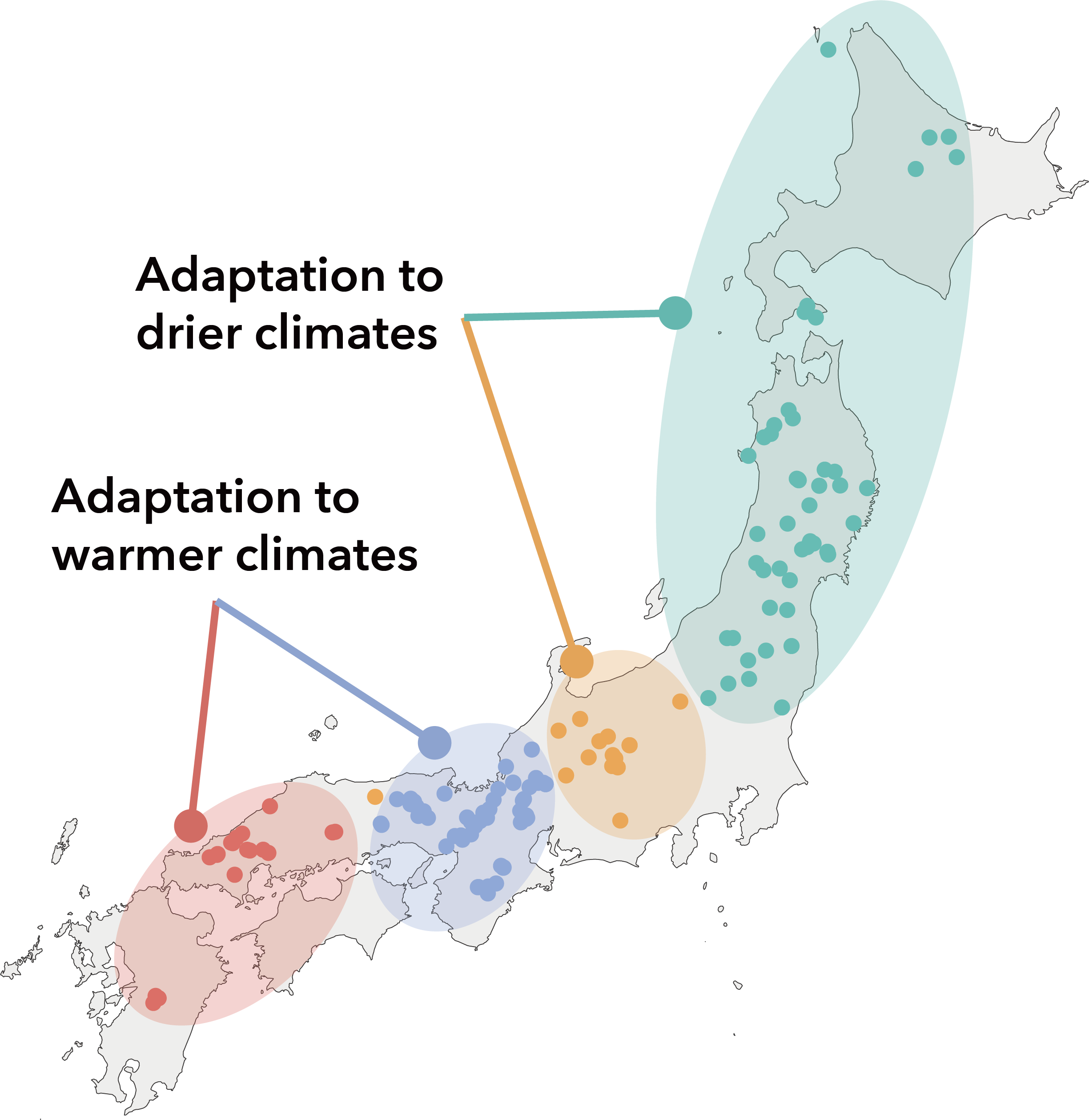DATE2024.11.06 #Press Releases
Genomic Analysis Revealed Climate Adaptation in Wild Plants
—— Adaptation to regional climates in plant populations of the mustard family——
Summary
A research group led by Professor Takashi Tsuchimatsu and graduate student Ryo A Suda of the Graduate School of Science at the University of Tokyo has shown that Japanese Arabidopsis halleri, a plant species of the mustard family, has evolved to adapt to the climate of the Japanese archipelago. By analyzing the whole genome sequences of 141 wild individuals distributed in Hokkaido, Honshu, and Kyushu along with 16 wild individuals distributed in Europe, this study revealed that Japanese A. halleri has changed its distribution range, and diversified into various regional groups since the last glacial period. Furthermore, the results showed that natural selection has acted toward warmer climates in western Japan and drier climates in northern Japan, indicating that A. halleri have adapted to the regional climates since the last glacial period (Figure). This understanding of historical climate adaptations offers valuable insights for predicting the evolutionary response of plants to future climate change.

Figure:Adaptation trends since the last glacial period in Japanese A. halleri.
Journals
-
Journal Plant and Cell Physiology Title of paper


